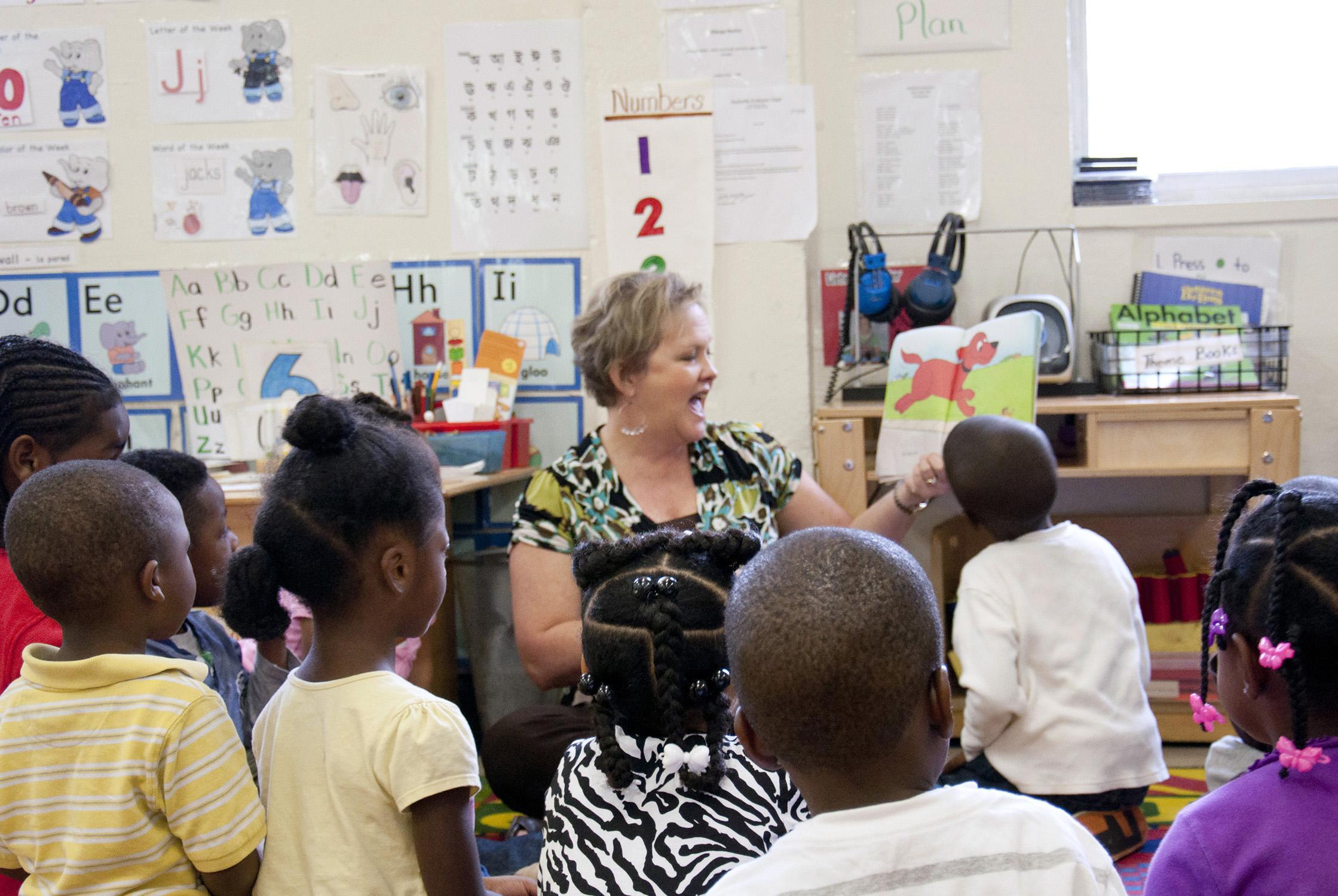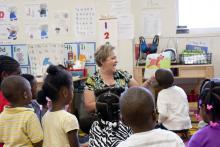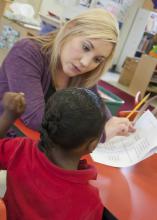Information Possibly Outdated
The information presented on this page was originally released on February 15, 2013. It may not be outdated, but please search our site for more current information. If you plan to quote or reference this information in a publication, please check with the Extension specialist or author before proceeding.
Rotary partnerships help early childhood literacy
By Alicia Barnes
MSU School of Human Sciences
MISSISSIPPI STATE -- Aiming to better prepare children for kindergarten, the Starkville Rotary Club is providing literacy assessments to local early care and education programs.
Working with an audience much younger than their usual lunch crowd, Rotary members introduced the Between the Lions Preschool Literacy Initiative to 3- and 4-year-olds at Emerson Preschool, the Brickfire Project and First Presbyterian Church Childcare.
Through a partnership with the Mississippi State University School of Human Sciences and the Mississippi Child Care Resource and Referral Network, more than 60 children completed the Get Ready to Read Screening Tool conducted by MSU students and staff.
“We had the opportunity to sit with each child and guide them through the tool to measure their early literacy skills needed to become readers,” said Melissa Tenhet, project director of the Mississippi Child Care Resource and Referral Network.
Research shows that reading skills develop in stages over years. Caregivers can provide children the fundamentals that produce future reading success by focusing on preliteracy activities such as reading aloud daily, practicing letter recognition and letter sounds, and singing nursery rhymes and songs.
Between the Lions is an award-winning PBS KIDS series that features a complementary curriculum promoting early word recognition and activities. Since 2007, Rotary Clubs throughout Mississippi have brought the Between the Lions curriculum, including pre- and post-assessment screenings, to childcare centers adopted in their districts.
More than just the preschoolers benefit from this program.
“The Between the Lions Literacy program allows MSU Human Development and Family Studies students an opportunity to refine their engagement and assessment skills with children in community-based preschool programs,” said Julie Parker, a professor in the School of Human Sciences. “We emphasize language and literacy development in their human development courses. This assessment experience allowed them to bridge their coursework to practice.
“Collaborative partnerships with the local community, like this one with the Rotary Club, enhance our students’ experience and perspectives for serving young children.” she said.
After the pre-assessments, Rotary provided classroom materials including teachers’ guides with weekly lessons, DVDs with a 10-15 minute Between the Lions video for each lesson, related books and additional classroom resources, such as alphabet strips, poem and song charts, magnetic alphabet letters and story figures.
Throughout the program, Rotary members visit the classrooms to read stories and interact with students.
“Reading for Between the Lions is a great opportunity to impact the lives of young children in our community. I really enjoy reading to the children every week,” Starkville Rotary member Jeff Donald said.
In April, MSU staff and students will return to complete post-assessments to measure the program’s impact. However, at least one MSU staff member has returned sooner.
“After my group finished delivering the screening tool, I had the chance to read with the class, which I absolutely enjoyed,” Tenhet said. “The children picked some of their favorite books from their class library. I know their teacher reads to the class because I skipped a word and I was quickly corrected by an eager reader that I had left out a word. I had so much fun I went back an additional day just to read.”
Created to serve the early care and education community through assessments, technical assistance, trainings and resource centers, the Mississippi Child Care Resource and Referral Network is a program of the MSU Extension Service and is funded by the Mississippi Department of Human Services, Division of Early Childhood Care and Development.





